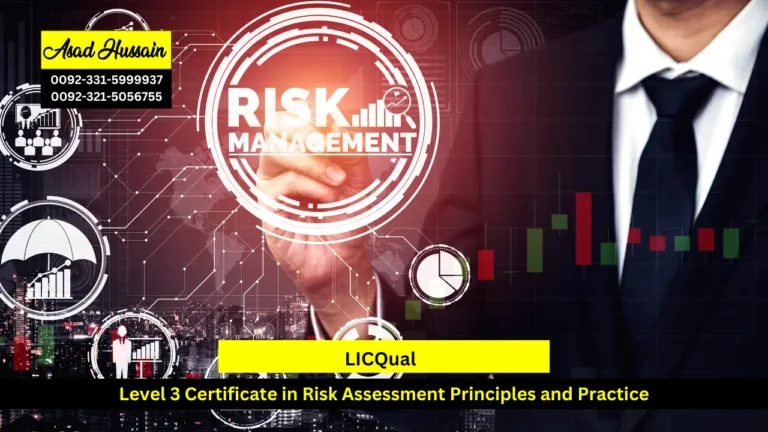The Qualifi Level 3 Diploma in Accounting and Finance might be the perfect stepping stone for you. This qualification offers a comprehensive introduction to the world of finance, providing essential knowledge and skills that can set you on the path to a rewarding and successful career.
The Qualifi Level 3 Diploma in Accounting and Finance is a nationally recognized qualification designed to equip learners with a solid foundation in accounting and financial principles. It covers a range of topics that are essential for anyone looking to enter the finance sector or pursue further studies in this field.
Enrolling in the Qualifi Level 3 Diploma in Accounting and Finance is straightforward. Interested learners can apply through accredited institutions that offer this qualification. It’s important to check the entry requirements, which typically include a good standard of literacy and numeracy.
Program Highlights
The Qualifi Level 3 Diploma in Accounting and Finance consist of 60 credits for the completed qualification.
Mandatory Units
- Financial Transactions Record- keeping
- Cost and Management Information
- Financial Records Maintenance
- Approved Centres are responsible for reviewing and making decisions as to the applicant’s ability to complete the learning programme successfully and meet the demands of the qualification. The initial assessment by the centre, will need to consider the support that is readily available or can be made available to meet individual learner needs as appropriate.
- The qualification has been designed to be accessible without artificial barriers that restrict access, for this qualification applicants must be aged 16 or over.
- In the case of applicants whose first language is not English, then IELTS 6 (or equivalent) is required. International qualifications will be checked for appropriate enrolment to UK higher education postgraduate programmes where applicable. The applicants are normally required to produce two supporting references, at least one of which should preferably be academic.
Financial Transactions Record-keeping
- Understand the principles of financial transactions: Students will grasp the basic concepts and principles governing financial transactions within an organization.
- Accurately record financial transactions: Students will develop the skills to systematically record all financial transactions using appropriate accounting software and manual methods.
- Ensure compliance with legal and regulatory requirements: Learners will be able to identify and apply relevant laws and regulations that govern financial transactions and record-keeping.
- Analyze and report financial data: Students will learn to generate and interpret financial reports that summarize recorded transactions for decision-making purposes.
Cost and Management Information
- Understand the role of cost accounting in organizations: Learners will gain an understanding of how cost accounting supports business decision-making and operational efficiency.
- Identify and classify costs: Students will be able to distinguish between different types of costs (e.g., fixed, variable, direct, indirect) and understand their implications for financial planning.
- Apply cost management techniques: Learners will learn to use various cost management methods such as budgeting, variance analysis, and break-even analysis to support business operations.
- Use management information for decision-making: Students will be equipped to analyze cost data and provide relevant information to managers for strategic and operational decisions.
Financial Records Maintenance
- Maintain accurate financial records: Students will develop the skills necessary to maintain up-to-date and accurate financial records, ensuring the integrity of financial data.
- Implement effective internal controls: Learners will understand the importance of internal controls and be able to design and implement controls to safeguard financial information.
- Prepare financial statements: Students will be able to prepare key financial statements such as the income statement, balance sheet, and cash flow statement, following standard accounting principles.
- Evaluate financial performance: Learners will gain the ability to assess the financial health and performance of an organization by analyzing financial statements and key performance indicators.
The Qualifi Level 3 Diploma in Accounting and Finance is designed for a diverse range of individuals eager to embark on or advance their careers in the finance sector. This course is perfect for school leavers who have recently completed their secondary education and are looking to gain a strong foothold in the world of accounting and finance. It also serves as an excellent opportunity for career changers seeking a structured and comprehensive entry into the financial industry. Professionals currently working in finance who wish to formalize their expertise and gain a recognized qualification will find this diploma highly beneficial. Additionally, aspiring entrepreneurs aiming to manage their business finances with confidence and accuracy can greatly benefit from the practical and theoretical knowledge provided by this course.







